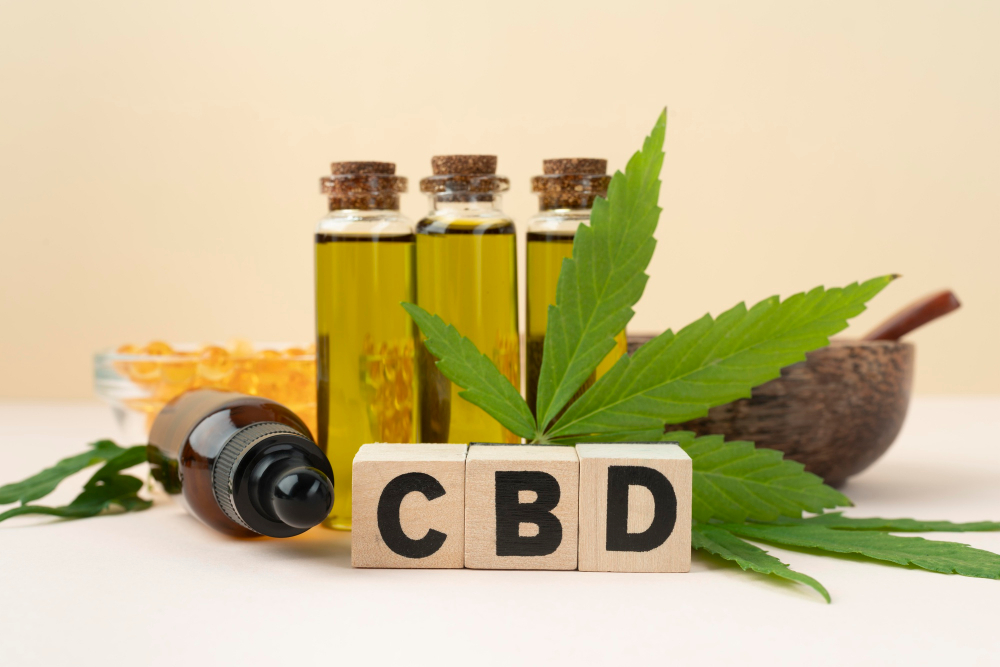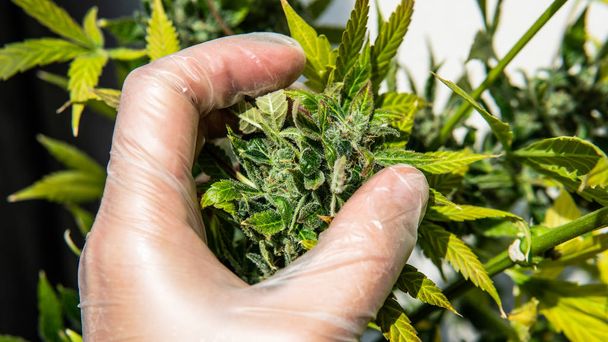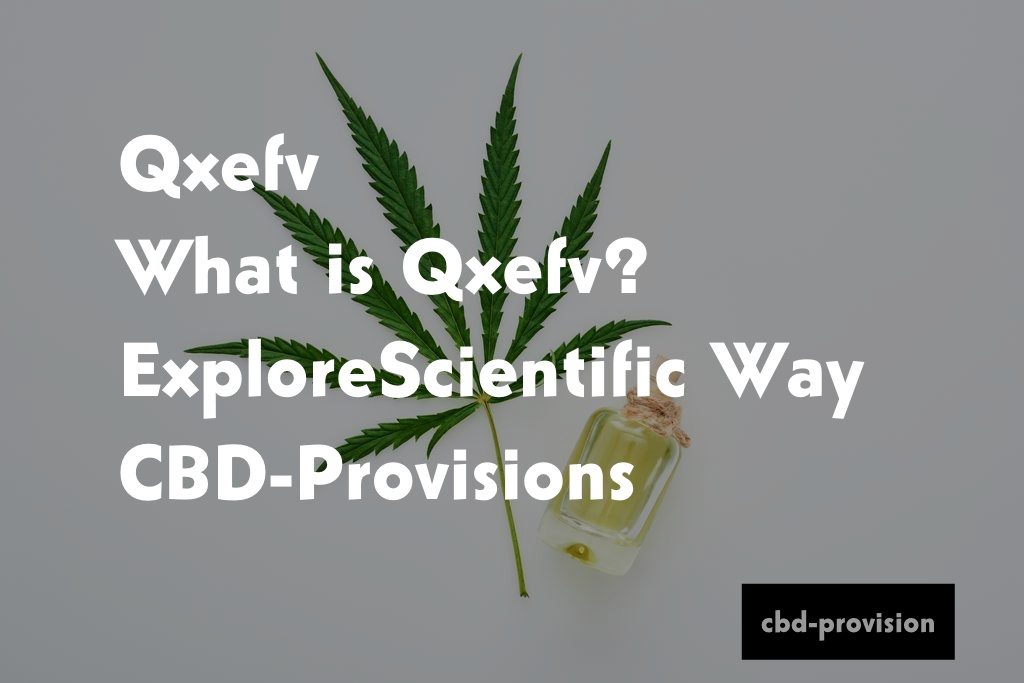Cannabidiol (CBD): A Senseless Explain
Cannabinoids, including cannabidiol (CBD), are compounds in the cannabis plant. Like THC (tetrahydrocannabinol), CBD also has a psychoactive impact; however, unlike THC, CBD does not provide a “high.” Instead, CBD interacts with the endocannabinoid system, a complex network of receptors that regulates emotional state, stress response, and sleep, among other things.
The healing power of CBD oil on mental health is a testament to the profound impact it can have on our well-being. From alleviating anxiety and depression to promoting relaxation and balance, CBD oil offers a natural and holistic approach to nurturing our mental and emotional health. As we embrace its therapeutic potential, let us recognize the transformative effects of CBD oil, empowering us to find tranquility and harmony within ourselves.
Research Findings on CBD’s Effects on Mental Health
Stress and anxiety disorders: CBD’s effects on anxiety and stress-related disorders have been the subject of several research. Anxiolytic (anti-anxiety) advantages of CBD were suggested by a 2019 meta-analysis of much clinical investigation. Neurotherapeutics is the journal where it appeared. Anxiety disorders, including social anxiety disorder, post-traumatic stress disorder (PTSD), and obsessive-compulsive disorder (OCD), have been linked to CBD’s potential to alleviate symptoms.
Second, the blues: Research on CBD’s potential therapeutic benefits for depression is still in its infancy, but the first results have been promising. A study conducted in 2018 on animal models found that CBD had antidepressant-like effects by increasing the release of serotonin. Although these findings are promising, further research with human volunteers is necessary to draw firm conclusions.
Mental health problems, such as depression and anxiety, are often associated with sleep disturbances. CBD has been studied as a potential aid for improving sleep quality. A 2019 study found that CBD helped those with anxiety and sleep difficulties get a better night’s rest. A study in 2020 suggests that cannabidiol (CBD) may help regulate sleep-wake cycles and improve sleep quality.
CBD’s antipsychotic qualities have also been investigated as a potential treatment for schizophrenia and other forms of psychosis. CBD was shown to be effective in reducing psychotic symptoms in people with schizophrenia in a randomized clinical investigation conducted in 2019. The study suggested that CBD might be a beneficial adjunct treatment to currently available antipsychotic medicines, but additional research is required to confirm its long-term usefulness and safety.
Drug addiction and substance use disorders: CBD is being studied as a potential treatment. Preclinical studies in rats suggest that CBD may reduce drug-seeking behavior and prevent relapse. Despite lacking human studies, early information indicates cannabidiol (CBD) may help alleviate drug addiction-related cravings and withdrawal symptoms.
Factors to Take into Account
The following should be kept in mind despite the promising findings of the research on CBD oil and psychological well-being:
First, Quality Assurance and Dosage: CBD products have comprehensive composition, quality, and potency variations. Choosing products from reputable manufacturers is crucial to ensure accurate CBD content labeling. Consult a medical professional to determine the optimal dosage for your mental health condition.
People may respond differently to CBD due to individual genetics, metabolism, and overall health variances. Constant vigilance and adjustments to the dosage are essential to ensure the desired results are achieved. CBD may alter the metabolism of certain medicines. Therefore, it’s vital to consider how that can affect other drugs.
Research limitations Although the existing corpus of research has shown some encouraging results, many studies had small sample numbers and needed long-term data. More extensive clinical research with larger populations must assess the safety, efficacy, and appropriate CBD dose for mental health issues.
The positive effects that CBD oil has been shown to have on mental health have made it an attractive area of study. CBD oil has been studied by scientists and medical professionals for its potential effects on mental health conditions and their mechanisms of action for quite some time.
Cannabidiol, or CBD, is extracted from cannabis and is not psychoactive. Theorized therapeutic effects include relieving symptoms of post-traumatic stress disorder (PTSD), depression, and anxiety, among others, and have garnered significant interest. Even though this field of research is still in its infancy, some examinations have produced promising results.
One of the significant ways CBD oil may affect mental health is via its interaction with the endocannabinoid system (ECS) in our body. The ECS regulates various physiological processes, including emotional regulation, stress response, and sleep. CBD’s law of the ECS is hypothesized to produce a state of balance and equilibrium, which may benefit mental health.
CBD oil’s anti-inflammatory and neuroprotective properties suggest it may help ward off neurodegenerative disorders and reduce oxidative stress in the brain. CBD oil’s potential to increase levels of specific neurotransmitters like serotonin, together with the abovementioned methods, suggests that it may alleviate the symptoms of mental illness.
Despite CBD oil’s apparent benefits, it’s essential to remember that more research is needed to learn about its full range of uses, safest dosages, and potential side effects. It’s also probable that not everyone would get any benefit from consuming CBD oil due to individual differences in response. Before incorporating CBD oil into a treatment plan for mental illness, discussing the decision with a healthcare practitioner is essential.
Studies and new information regarding the impact of CBD oil on mental health provide a look into a potentially useful therapeutic tool. More research and clinical trials are needed to determine the best methods to utilize CBD oil in treating mental health issues, its effects, and its benefits. Combining trustworthy research with individualized medical guidance can give patients with mental health issues access to safer, faster alternative treatments.







